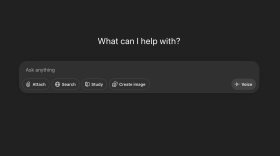Calls to end systemic racial injustice are reverberating throughout the country. That includes around issues of environmental injustice.
One of the people in the Milwaukee area guiding organizations and corporations along the path is August Ball. She calls herself an inclusive culture coach. She works to help groups fold inclusivity in and push racism out of their operations.
Ball thinks of herself as a facilitator — just one of several hats the Milwaukee resident wears. She serves on both state and local climate task forces. She founded Cream City Conservation & Consulting in 2016 after a decade of working in the conservation field.
She says the organization provides young adults paid training and internships in conservation, green infrastructure and public policy. Many of the members are young people of color. Ball says they typically aren't greeted with open arms when transitioning to the real world.
"What we’re finding and what we’ve been finding for some time now is that there’s not really a shortage of talent. The problem is that folks are not either getting in the door or they’re getting in the door and they’re experiencing such substantial microaggressions, that they leave," Ball says.

READ: Milwaukee Area Conservation Corps Team Up To Cleanup
Ball says prejudice is baked into our country’s culture.
"Most Americans have been socialized to be very aversive to the potential that they themselves could even hold any form of racist ideology because we think only 'bad' people have these perspectives," Ball explains.
Ball says society “can’t rely on the systems that got us here to get us out.” So, she fosters solutions by providing trainings and workshops, including on topics such as conflict management and strategies to recruit and retain diverse staff members. That’s the “consulting” side of Cream City.
She works not only with environmental groups but corporations. Ball helps her clients rethink hiring practices.
“We can find an accountant of color, we can find a marketer of color, we can find a land steward of color. Ideally, we get to a point where our organizations are doing this work so intrinsically that you are organically attracting a diverse talent pool," she says. "That you are organically retaining that talent and that everyone feels that they can thrive, has a voice and equal opportunity regardless of their identities. Ideally, that’s the end goal."
The income from Ball’s diversity and equity consulting is funneled back into the “corps” side of her work, to pay Cream City crew members — those are the young adults in training.
Ball says as a facilitator, she can’t change the culture of other organizations. She says that determination and hard work has to come from within.
“My job is to offer some information, to provide context so that we can actually, potentially have a somewhat helpful conversation, a starting place in getting everyone to have a mutual understanding of what the problem is; how it’s sustained all this time,” Ball says.
And as Ball puts it, groups have to get beyond the “blame game” and talk candidly about the situation.
“At the end of the day, the organizations, the companies themselves, they have to be willing to move the work forward and what I often get asked is what’s the quick thing we can do right now. And what I’d like for people to really think about is: what is the deep, difficult work we can do that is going to create lasting change,” Ball says.
Ball says the outrage over violence by police in Milwaukee, Kenosha and other cities has led more organizations to her virtual doorstep, as they look for ways to fold inclusivity into their culture. In fact, it’s more business than she can handle.
So, does Ball think the momentum will lead to systemic change?
“If we’re ready? If this going to be the turning point? I don’t know. But I do know, though, that I think this will be the last generation that tolerates it one way or the other,” Ball says.
Have an environmental question you'd like WUWM's Susan Bence to investigate? Submit below.
_







